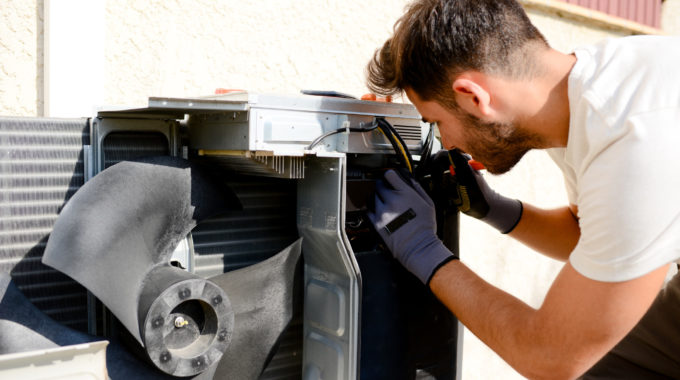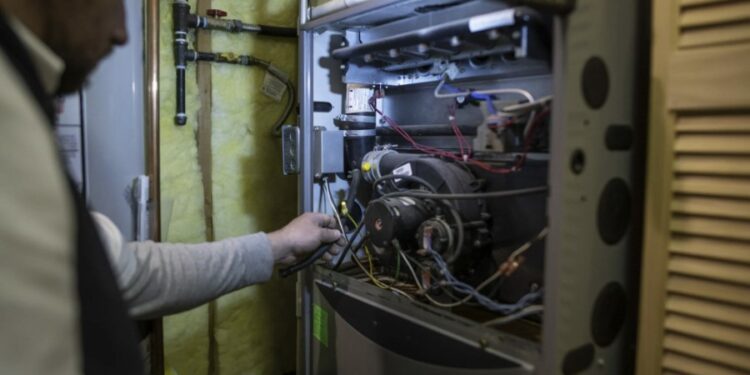Emergency furnace repair services are provided by professional HVAC companies for heating emergencies. Your furnace repair needs immediate attention if you’re unable to heat your home during the winter months. However, you could need emergency furnace repair anytime during the year, especially if you heat your home with natural gas.
What Constitutes an Emergency Furnace Repair Situation?
Problems that may require emergency furnace repair to your home’s furnace:
- Combustion problems
- Gas leaks
- Malfunctioning limit switches
- Heat pumps
- Clogged furnace filters
A trained and experienced furnace repair specialist can reliably repair any one of these problems. First, it is important to know which situations can be called furnace repair emergencies.
How Long Will an Emergency Furnace Repair Technician Take?
The timing and urgency of your repair impact the amount of time it takes for an HVAC technician to complete the emergency repair. It can take several days during the busy winter months.
Oftentimes, HVAC companies will schedule repairs based on need. Here are instances of emergency repairs happening and different times, and how it might impact when the technician comes out to address the repair:
- The problem occurred at the end of working hours – This means you will have to wait until the next day for service through regular means.
- A problem occurred just before the weekend – This means you will have to wait for at least two days before regular services are available again.
- Extreme weather – If the weather outside is extremely cold and your furnace suddenly stops working, it cannot wait for a few hours or a day or two.
- Newborns, infants, young children, or elderly at home – These people need extra care and comfort. A safe room temperature is essential for them at all times, so a technician might prioritize these facilities or homes.
Who Should You Call for Emergency Furnace Repair
HVAC Emergency Heating Services should always be provided by trained and certified technicians. This ensures your safety, reduces the likelihood of further damage to your system, and may increase your unit’s longevity. For all your furnace repair and HVAC needs, you need to find a reliable local HVAC contractor with a good reputation and experience.
Local contractors, be it individuals or companies, have the advantage of being familiar with unique location-based challenges. They are also well-connected to the local supply chain, so they can often offer better prices and fast procurement for components.

Modern heating systems are best handled by a team of professionals. This puts HVAC contractors at an advantage over one-man operations. Independent contractors are usually not available for emergency services, especially not 24/7. Meanwhile, reputable HVAC companies are usually available around the clock and have fast dispatch.
What Is the Average Cost of Furnace Repair?
The cost of repairing your furnace will vary based on the kind of furnace you have and what needs to be repaired. As a rule of thumb, simple systems like single-stage furnaces are cheaper to repair. Complex systems like digitally controller modulating furnaces are more expensive to repair.
Sometimes old furnaces might need replacement because the cost to repair may be too high, or it may be beyond repair. There are various factors to consider to know whether your heating system needs repair or replacement.
Types of Furnaces That Need Repair
Furnaces are usually divided into three main categories. Let’s take a look at each of them:
Single Stage Furnace
These furnaces only have an on and off switch with no way to change the temperature. These will run full blast once they are turned on and have no medium setting. These are the cheapest and also the least fuel-efficient furnaces you can buy.
Two-Stage Furnace
These are a little better than single-stage furnaces. They usually have a medium setting that sits in between off and full flame. These are mid-segment furnaces that are also moderately fuel-efficient. It gives you some control over your room temperature as opposed to single-stage furnaces.
Modulating Furnace
These furnaces are the most expensive options.They are also the most fuel-efficient, making up for the initial investment over the long run. They heat your home more evenly and self-regulate to maintain the desired temperature.
The various technologies used for furnaces include:
- Condensing Technology
- Electronically Communicated Motors (or ECM)
- Electronic Ignition
- Intelligent Digital Electronics
- WiFi
You can also differentiate furnaces based on the fuel types they use. In order of low to high cost of operation, they are:
- Gas
- Propane
- Oil
- Electric
Installing oil furnaces is costlier than the other three, which costs similar to each other.
Have Your Certified Emergency Furnace Repair Specialist’s Number at the Ready
If you have decided after reading this an emergency furnace repair service is required, you are in luck! Most areas have professional companies offering round-the-clock services that will repair your heating system or help you troubleshoot it.
Since prevention is better than a cure, it is best to start a regular maintenance service for your furnace as soon as the current situation has been addressed.






